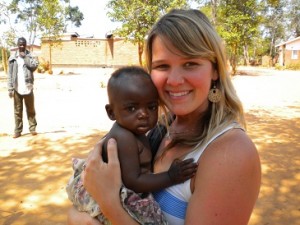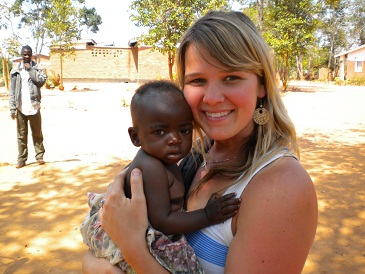All My Children

The child had been wounded in a rocket attack in Syria. She lay, arms and legs splayed, on a hospital gurney too big for her. An oxygen mask cupped her nose and mouth. Tubes and lines grew like dark tendrils from her arms.
I turn the newspaper page. Next article. I’m looking for stories that interest me. I don’t have all day. I start reading about soaring gas prices. Her dark hair was so pretty, tight curls cushioning her wounded head. The little girl on the gurney won’t go away. Something makes me go back to her picture, and I spend a few moments looking, even though I don’t want to. This is someone’s darling child, someone’s everything, but she is not mine and so it does not matter. If she were an American girl, I would be a little more interested, but she is Syrian. And if she were from my state or my town, people at work would all be talking about “that little girl,” and everyone at church would be praying for her. But she is not our girl.
In his book, Who Speaks for God, Jim Wallis tells the story of a tragic incident from the long siege of Sarajevo in the 90s. A reporter who was covering the war from the heart of the city saw a little girl struck down by a sniper’s bullet. In the moment, he stopped being a reporter, dropped his notebook and rushed to help the man who was now cradling the girl in his arms. He helped them to his car and drove madly for the hospital.
“Hurry, my friend,” said the man holding the girl, “my child is still alive.” A moment or two later, “Hurry, my friend, my child is still warm.” By the time they reached the hospital the young girl was gone. “This is a terrible task for me,” the distraught man said. “I must tell her father that his child is dead. He will be heartbroken.” The reporter was stunned. “I thought she was your child.” The man replied, “No, but aren’t they all our children?”
It’s important to care about our own flesh-and-blood children, to love them with special ardor. But if that love is divinely fired, it will always take us beyond our immediate family. We won’t love our “own” any less, we will simply see more and more children as our own.
The reason I cannot allow myself to care very much for people like that young girl on the gurney is because I am afraid there is a limit to my love, a limit to my time, to my money. I need to keep it for me, for mine.
There is a purple passage in Steinbeck’s The Grapes of Wrath, about how privation and hardship bind people together. The more we have, the less we need one another, and the more we worry about too many drains on our resources.
The cars of the migrant people crawled out of the side roads into the great cross-country highway, and they took the migrant way to the West . . . . And because they were lonely and perplexed, because they had all come from a place of sadness and worry and defeat, and because they were all going to a mysterious new place . . . a strange thing happened: the twenty families became one family, the children were the children of all. The loss of home became one loss, and the golden time in the West was one dream.

Guess that’s what Jesus did–took on the pain and suffering of the whole world–and it makes sense that his advice to Rich Young Ruler: sell it all and follow!
We need to love them all – all children, all those who walk on the eart, including all animals, plants, birds – everything. If we do not help, who will?
Ginny